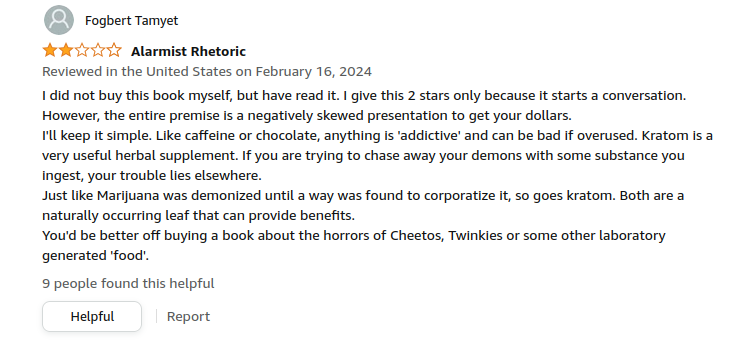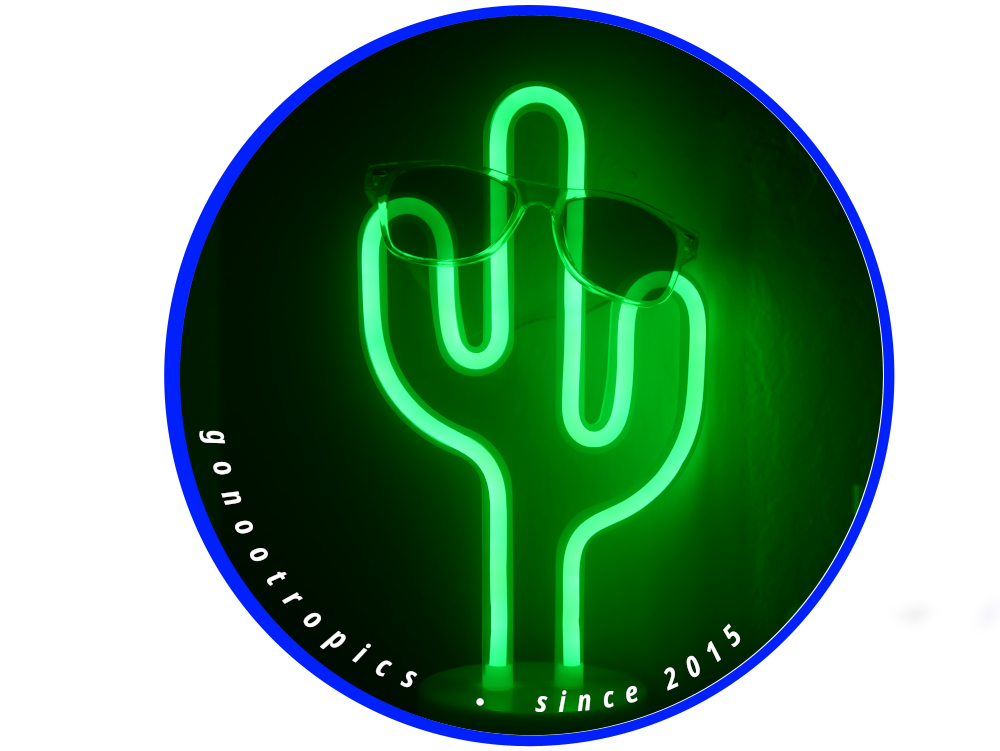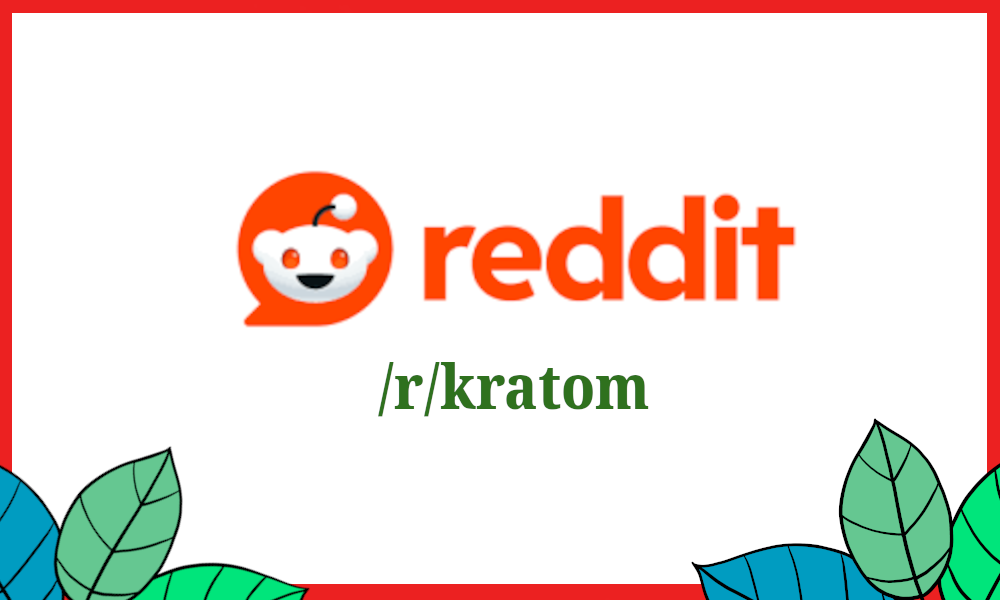Note from the editor: This post is not representative of the entire Kratom community, but these are some common threads I see pop up over and over again. It is part facts but also an opinion piece on what I believe to be some real negatives of the community, and a few things I think mislead new Kratom users.
Anything of decent substance will inevitably foster a community surrounding the thing. Let’s make no mistake – Kratom is powerful plant medicine with an impressive resume of effects and benefits. I do not deny this. Never however, have I come across a community more delusional than the Kratom community. The mental hamster wheeling is always on full display, with users making the wildest claims and blatantly lying about Kratom. Such gregarious lies has resulted in thousands of new Kratom users walking themselves blindly off the cliff and into the void of a moderate physical and psychological dependence they never expected.
In this post I’ll cover some of the more outlandish fibs put forth by the community.
Kratom is no more dangerous than coffee
This lie is especially egregious and it’s almost said compulsively by the community. I don’t know the origins of this particular one liner, but I can only assume it’s because Kratom belongs to the same family as coffee, as if this implies a similar safety profile. The reality is, Kratom is pharmocologically much more diverse than coffee and boasts a far more complex alkaloid profile. Consider coffee has merely 2 alkaloids while Kratom has approximately 45 – and these are just the ones we’ve managed to identify in recent history.
Disregarding Kratoms unique effects on the mu-opioid system, it also displays serotonergic, adrenergic, and dopaminergic properties, in addition to interacting with adenosine receptors similar to coffee. Kratom IS safer compared to let’s say pharmaceutical opioids, but this is not the point the community tries to make. When they make comparisons, it’s always to something much more benign. It is objectively false that Kratom carries similar risks to coffee, and they even sometimes compare it to chocolate.
A recent review on my book illustrates this point perfectly. Mind you, this reviewer never actually bought the book. He claims to have read it but never bought it. At the time of this review I maybe sold 100 copies tops, and he just so happened to find one and read it? Just another example of the communities willingness to lie and cover up what they consider to be slanderous information.

Regarding the real dangers, we do have data to look at. I was shocked to discover how very few caffeine related overdoses there have been in history. One 2018 study reported a mere 92 caffeine related deaths in recorded history. Many of these deaths were not from just a strong cup of joe, but caffeine capsules or powder. A third of these deaths were suspected to be suicides.
In contrast, an investigation put on by the Tampa Bay Times found 580 people had died from a Kratom related overdose. Granted, most had other drugs in their system but 46 did not. These numbers are not too concerning overall, but it’s a BIG stretch to say it’s no more dangerous than coffee or even more laughable, chocolate.
One thing to note with Kratom is it inhibits enzymes that allow the body to break down and eliminate drugs from the body.
Here’s a little snippet from the study:
Kratom metabolism is primarily hepatic, and there is evidence that it can influence the metabolism and efficacy of other medicines by inducing drug-metabolizing enzymes, namely CYP450s and UDP-glucuronosyl transferase (UGT)[54]. The effects of kratom on human recombinant CYP450 enzyme activity have been studied in various research[55].
This by itself is concerning, and something you don’t have to worry about with coffee. I’m not saying Kratom is dangerous, only that it certainly carries more risks than coffee – a hard fact the Kratom community denies time after time.
Anytime a study or investigative report comes out illuminating the risks of Kratom, the community actively attempts to discredit the work. Here’s an example of the community blatantly disregarding cold hard facts:

I do understand nobody including myself wants the DEA to ban Kratom, but the way to do that is not by inhibiting and discrediting people from discussing basic facts and realities, even if the facts could be seen as “negative” in nature.
Kratom is no more addictive than coffee
This is another laughable claim often parroted by the Kratom community. Once again, I believe this level of bird-brained logic stems from Kratoms loose relation to the coffee family, and the pro Kratom users desperate attempts to justify and legitimize their Kratom usage, all while thinking they are getting the one up on those trying to take away their precious saviour. Kratom users often find themselves needing more and more to achieve medicinal effect. As their dose increases, so do the negative side effects. It may be years before they decide to quit either cold turkey or with the tapering method, and when they do, hellish withdrawals ensue that mimic a typical opioid withdrawal – restless legs, crawling skin, insomnia, cold/flu like symptoms, and lingering depression and anxiety that can take months to fully recover from.
When they look to the Kratom community for help, they are only told that they are an addict, and they never should have abused Kratom.
But wait…didn’t they just spend the past years telling everybody Kratom was no more addictive than coffee? Something is not adding up here.
The delusion of the pro Kratom community knows no bounds.
If you’re not using Kratom for pain, you’re using it wrong
There’s a common thread in the pro Kratom community – and that’s if you’re using Kratom for anything other than pain, you’re an addict, an abuser, and you give Kratom a bad name. This particular type of person has placed himself up on a pedestal, giving him and only him special permissions to use Kratom. You see, because he’s in pain, his usage is justified. If you’re using Kratom to treat anxiety, depression, or mental illness – you don’t belong because you don’t understand what Kratom is for.
Nevermind the fact that how the western world uses Kratom isn’t even how the natives of southeast asia use it. Over there they’re chewing the leaves or brewing tea. They use it mainly as a stimulant to do field work or whatever else. In fact, I’ve heard most locals don’t even know what it is, and it’s not deeply baked into their society like we think it is. Historically, Kratom powder is a much newer method of taking Kratom and a lot more potent than just chewing the leaves or making tea.
This type of Kratom user also makes the mistake of assuming that Kratom is only used for its painkilling properties, when you could easily say that its opioid properties are actually quite weak in comparison to let’s say, its stimulant and anti-depressant effects. Certainly it does produce an analgesic effect, but it’s also a much more complex and rich botanical, and has a wide swathe of benefits and practical applications beyond just easing pain. If you wanted to stoop to their level of logic, I’d say the clinically depressed have more rights to use it than the pain patient.
However, any attempts to reason with a pro Kratom user will only be met with their entire medical history and all the reasons why they’re in much more pain than you are. You don’t have to dig deep to find people one upping each other, each painful story becoming more and more ridiculous and drawn out.
I am not addicted
The final big lie of your average run-of-the-mill pro Kratom user is the statement of “I am not addicted.” Not only do they tell you Kratom is no more addictive than coffee or chocolate, but they’re very adamant about reminding everybody how easy it is for them to moderate, and obviously, they take Kratom for pain which of course easily justifies them taking as much as they want anyways. Without anybody asking you’ll see them casually drop how little Kratom they use, how they experience next to no side effects, and how they can’t understand for the life of them how somebody could abuse Kratom at all. Yet, here they all are in a well established community, clocking in everyday to consume Kratom related content, and basically obsessing over the plant.
If it’s one thing we know about addicts it’s they lie about their usage. It’s not even a conscious awareness, and they may even believe it as they’re saying it.
Now, I’m not saying it’s IMPOSSIBLE to moderate Kratom and use it responsibly. I think many do so. All I’m saying is I don’t think someone who’s truly not addicted would spend everyday inside a community of other Kratom users, to what amounts to be an obsession with the plant. To the very casual Kratom user, they probably forget they even have it in their cupboard. To them, it might as well be the salt or pepper – and they’re certainly not gonna sit online talking about salt all day.
Conclusion
I write this post not to demonize Kratom, but to deliver the truth about what it is. The Kratom community doesn’t want to discuss the truth, and they want to hide half of the equation.
Many people took Kratom for years with no understanding of drugs or how they work, and were faced head to head with nasty withdrawals for the first time, all because the community lied to them and downplayed the very real negatives. Many found out that it’s not like coffee at all.
Thank you for reading.
Join up for exclusive giveaways!
Enter your email address to qualify for my monthly nootropic giveaways


